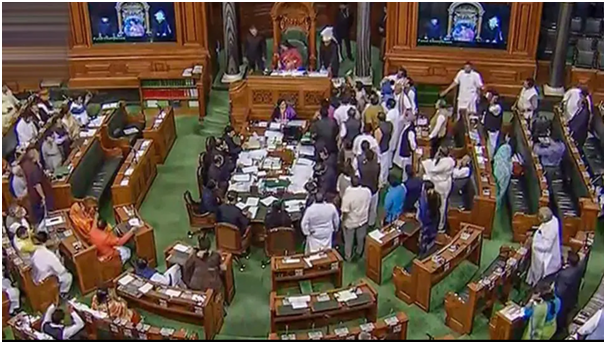Deputy Speaker
Context: The Supreme Court recently issued notices to the Centre and five states — Rajasthan, Uttarakhand, Madhya Pradesh, Jharkhand and Uttar Pradesh— over the failure to elect a Deputy Speaker.
Constitution on the office of Deputy Speaker
- Article 93 says The House of the People shall, as soon as may be, choose two members to be Speaker and Deputy Speaker and, so often as the office of Speaker or Deputy Speaker becomes vacant, the House shall choose another member.
- Article 178 contains the corresponding position for Speaker and Deputy Speaker of the Legislative Assembly of a state.
Is it mandatory to have a Deputy Speaker?
- Constitutional experts point out that both Articles 93 and 178 use the word “shall”, indicating that the election of Speaker and Deputy Speaker is mandatory under the Constitution.
How soon must the Deputy Speaker be elected?
- “As soon as may be”, say Articles 93 and 178 but they do not lay down a specific time frame.
- In general, the practice in both Lok Sabha and the state Assemblies has been to elect the Speaker during the first session of the new House — usually on the third day after the oath-taking and affirmations over the first two days.
- The election of the Deputy Speaker usually takes place in the second session — and is generally not delayed further in the absence of genuine and unavoidable constraints.
- Rule 8 of The Rules of Procedure and Conduct of Business in Lok Sabha says the election of Deputy Speaker “shall be held on such date as the Speaker may fix”. The Deputy Speaker is elected once a motion proposing his name is carried in the House.
- Once elected, the Deputy Speaker usually continues in office for the entire duration of the House.
- Under Article 94 (Article 179 for state legislatures), the Speaker or Deputy Speaker “shall vacate his office if he ceases to be a member of the House.
- They may also resign to each other, or may be removed from office by a resolution of the House of the People passed by a majority of all the then members of the House.
- If the office of the Deputy Speaker is vacant, by the Secretary-General who receives the letter of resignation in that House.
Powers of the Deputy Speaker
- Article 95(1) says When the office of Speaker is vacant, the duties of the office shall be performed by the Deputy Speaker.
- In general, the Deputy Speaker has the same powers as the Speaker when presiding over a sitting of the House.
- All references to the Speaker in the Rules are deemed to be references to the Deputy Speaker when he presides.
- It has been repeatedly held that no appeal lies to the Speaker against a ruling given by the Deputy Speaker or any person presiding over the House in the absence of the Speaker.
Position of the Union government on the current vacancy
- The government have maintained there is no “immediate requirement” for a Deputy Speaker as “bills are being passed and discussions are being held” as normal in the House.
- There is a panel of nine members — senior, experienced, and selected from different parties — who can act as chairpersons to assist the Speaker to run the House”.
Can the courts intervene ?
- Courts usually don’t intervene in the procedural conduct of Parliament.
- Article 122(1) says The validity of any proceedings in Parliament shall not be called in question on the ground of any alleged irregularity of procedure.
| Practice Question
1. What is the importance of the office of the Deputy Speaker? Can Court intervene in the appointment process of Deputy Speaker? |








